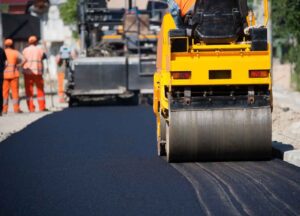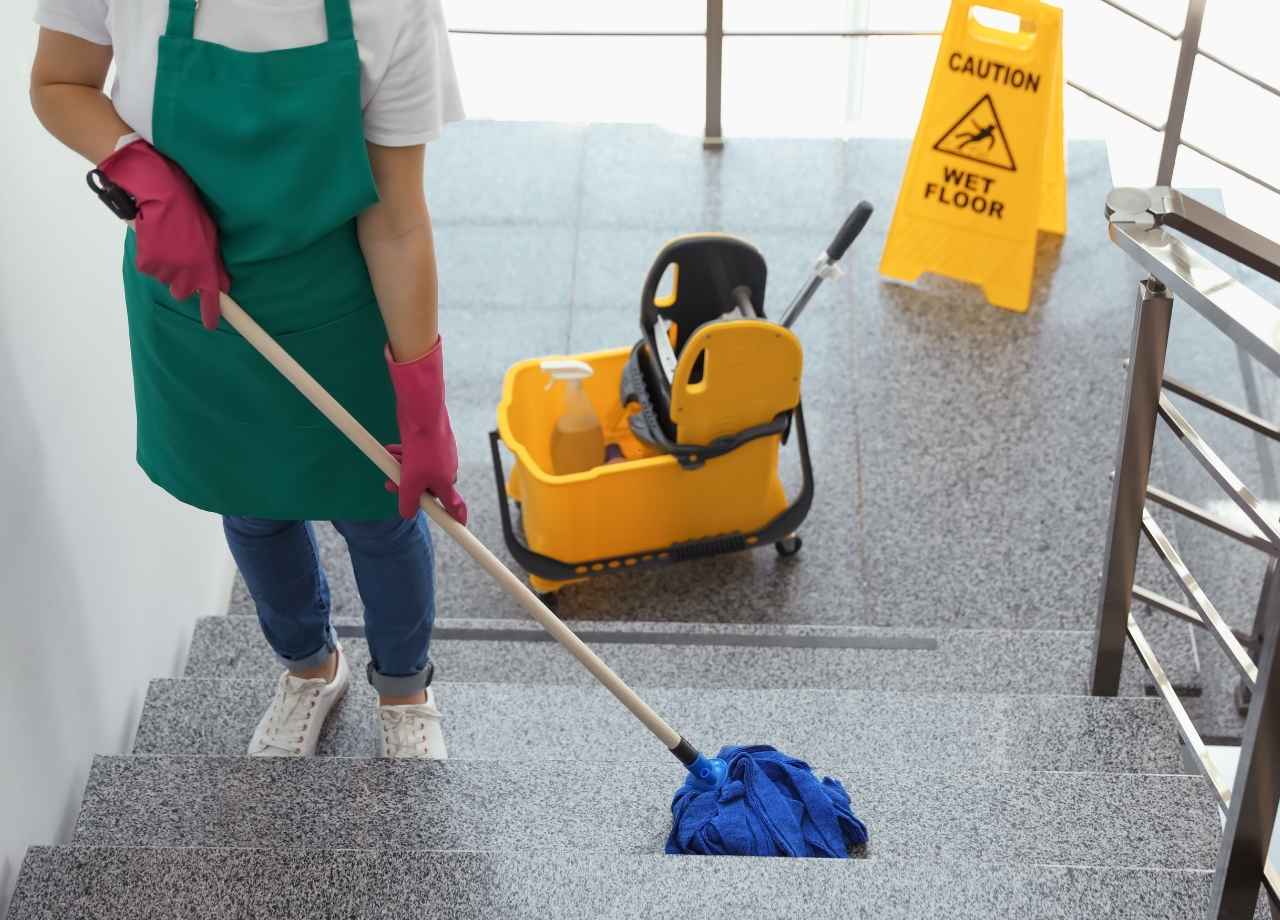Separating Amateurs From Professionals – Asphalt Laying
You just had fresh asphalt laid, and it looked perfect. But months later, cracks start forming, puddles won’t drain, and the surface feels uneven. What went wrong? The difference between professional and amateur asphalt work isn’t always visible at first—but it becomes painfully clear over time. Choosing the right contractor means the difference between a smooth, durable surface that lasts years and a costly mistake that needs repairs sooner than expected.
Amateur work on driveways, parking lots, or roads often reveals its flaws after seasonal temperature changes, heavy traffic, or poor drainage expose underlying weaknesses. Understanding what separates professional asphalt laying from subpar work ensures a higher return on investment and long-term durability.
Recognizing Preparation Quality
Professional asphalt laying begins long before the hot asphalt mixture arrives. Skilled contractors dedicate significant time to grading and compacting the subgrade, ensuring a stable base.
- Professionals use laser levels, heavy compaction rollers, and carefully engineered drainage plans.
- The subgrade is cleared of debris, stabilized, and compacted to precise specifications to prevent shifting and cracking.
- Proper base preparation prevents potholes and depressions, even under heavy traffic or extreme weather conditions.
Amateurs, on the other hand, often skip essential preparation steps or do minimal leveling, assuming the asphalt will compensate for uneven surfaces. However, asphalt does not hide poor foundations—it amplifies them. Poor base work leads to premature cracking, water pooling, and costly repairs within months instead of years.
Importance of Asphalt Mix Selection
Not all asphalt is the same. A common mistake made by inexperienced contractors is using a generic or lower-cost asphalt mix, which may not be suited for the specific environment or load-bearing needs.
- Professionals select asphalt mixtures based on climate, traffic patterns, and weight load requirements.
- The correct mix ensures flexibility in temperature changes, resistance to wear, and long-term durability.
- Expert contractors consult suppliers and engineers to determine the ideal aggregate size, binder grade, and necessary additives for stability.
In contrast, amateurs often choose lower-cost materials, overuse recycled asphalt, or cut corners with poor-quality aggregates. This results in surfaces that deteriorate quickly, requiring frequent maintenance and resurfacing.
Precision in Laying and Compaction
The technique used to lay asphalt is one of the most significant indicators of quality. Skilled professionals ensure uniform application with precise temperature control, maintaining optimal workability during placement.
- Asphalt must be maintained between 275°F and 325°F during installation to ensure proper bonding and compaction.
- Professionals use advanced paving machines rather than manually spreading asphalt with shovels and rakes, ensuring even thickness.
- High-quality rollers compact the surface at a density exceeding 90%, preventing premature deterioration.
Amateur work often results in uneven application, weak adhesion between layers, and poorly compacted surfaces. This leads to premature cracking, rough patches, and a surface that cannot withstand long-term use.
Attention to Edges and Transitions
Edges and transitions between asphalt and other surfaces, such as sidewalks, concrete, or existing roads, often reveal the difference between professional and amateur work.
- Skilled contractors use steel edging tools to create crisp, defined edges that resist crumbling.
- Proper transitions between surfaces include expansion joints or ramps to ensure safety and durability.
- Clean, professional finishes enhance the overall visual appeal and structural integrity of the project.
Amateurs frequently neglect these details, resulting in jagged edges that break apart quickly or unsafe transitions that cause tripping hazards.
Understanding Drainage Considerations
Water is one of the biggest threats to asphalt longevity. Without proper drainage, water seeps beneath the asphalt, weakening the subgrade and leading to cracking, potholes, and structural failure.
- Professionals implement engineered slopes, crowns, and drainage channels to divert water away from the asphalt.
- A 1% to 2% slope is typically designed to ensure efficient drainage without creating awkward surface angles.
- Contractors account for regional climate conditions to prevent long-term water damage.
Inexperienced contractors often overlook these essential drainage considerations, leading to persistent water pooling and surface degradation.
Utilizing Appropriate Equipment
Professional asphalt contractors invest in modern, well-maintained equipment that ensures quality results. Amateurs, on the other hand, often rely on outdated or rented equipment that may not be suited for the project.
- GPS and laser-guided paving machines ensure precise leveling and surface thickness.
- High-quality compaction rollers remove air pockets and increase asphalt density, preventing weak spots.
- Proper equipment calibration ensures consistent material flow and pressure distribution.
Without the right tools, amateur work often leads to inconsistent surfaces, rapid deterioration, and the need for premature repairs.
Finishing Techniques: Sealcoating and Striping
Finishing techniques play a vital role in asphalt longevity and appearance. Professional contractors apply sealcoating and striping with precision to ensure a polished, durable finish.
- Sealcoating protects asphalt from UV rays, moisture, and chemicals, extending its lifespan.
- Professionals apply high-quality sealants in optimal weather conditions to prevent streaking or pooling.
- Striping is carefully measured and applied with professional equipment to maintain crisp, even lines.
Amateur sealcoating often results in uneven coverage or premature wear, while poor striping can create confusion and safety hazards.

Communication and Professionalism
The best asphalt contractors provide clear communication and transparency throughout the project. This is a critical factor that separates professionals from less experienced workers.
- Professional contractors offer detailed quotes outlining costs, timelines, and materials.
- Licensed and insured contractors provide accountability, protecting clients from liability risks.
- Regular updates and client consultations ensure expectations align with the final outcome.
In contrast, amateurs often provide vague estimates, lack insurance, and fail to communicate project progress, leading to unexpected costs and delays.
Warranty and Follow-Up Services
A reputable contractor stands behind their work with a written warranty and follow-up support.
- Professionals offer warranties covering materials and labor, typically for one to two years.
- Routine inspections and preventive maintenance recommendations help extend the life of the asphalt.
- Clients receive ongoing support rather than being left with unexpected issues after installation.
Amateurs rarely provide warranties, and when issues arise, customers are often left without recourse.
National Facility Contractors specializes in delivering high-quality asphalt solutions designed for longevity and durability. With a commitment to precision, top-grade materials, and professional execution, we ensure every project stands the test of time. Whether it’s a commercial parking lot, roadway, or industrial pavement, we provide expert craftsmanship backed by clear communication, industry knowledge, and long-term value.
Conclusion
Selecting a professional asphalt contractor is about more than just comparing prices or surface appearances. It requires evaluating meticulous preparation, appropriate material selection, precise laying and compaction techniques, attention to edges and drainage, professional equipment use, proper finishing methods, transparent communication, and reliable warranty coverage. Asphalt work completed by professionals significantly outlasts amateur attempts, offering greater value, aesthetic appeal, safety, and long-term savings. Investing in quality asphalt work today prevents costly repairs in the future.
This version strengthens the impact of the blog while positioning NFC as the trusted expert. Let me know if you’d like any further refinements!






